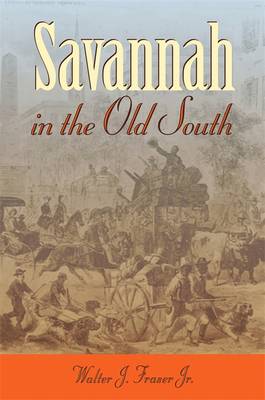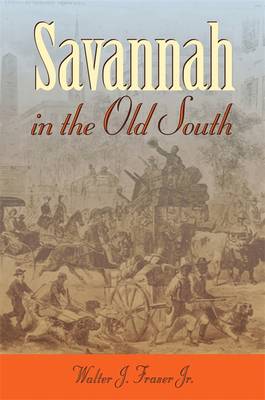
- Afhalen na 1 uur in een winkel met voorraad
- Gratis thuislevering in België vanaf € 30
- Ruim aanbod met 7 miljoen producten
- Afhalen na 1 uur in een winkel met voorraad
- Gratis thuislevering in België vanaf € 30
- Ruim aanbod met 7 miljoen producten
Zoeken
€ 37,45
+ 74 punten
Omschrijving
This flowing, instantly engaging narrative tells the story of Savannah from the hopeful arrival of its first permanent English settlers in 1733 to the uncertainties faced by its Civil War survivors in 1865. Alongside the many women and men of European, African, and Native American heritage who helped shaped Savannah's first century and a half, Walter J. Fraser Jr. also shows how war, disease, market forces, fire, and other circumstances left their marks on the city and its people.
Among other major developments in Savannah's history, Fraser recalls the hardships of its first residents; the depredations of the Revolutionary War; the relocation of Georgia's capital away from the city; the growth of commerce through railroads and steamships; the establishment of public institutions such as the Female Asylum for orphaned and abandoned girls and the Poor House and Hospital; and the emergence of public education, a professional police force, and other elements of an urban infrastructure. More than any previous history of the city, Savannah in the Old South points out how whites and blacks, bondpeople and free men and women often interacted in ways that smoothed away the rough edges of racism. From Savannah's physical layout to its cosmopolitan culture, from its social services network to its racially diverse poor neighborhoods, the city offered opportunities for daily contact between blacks and whites that did not exist in the surrounding rural areas. By the eve of the Civil War, Savannah had become Georgia's major commercial and cultural center and the region's sixth largest city. The story of its remarkable growth is told here with an eye for telling facts and human drama.Specificaties
Betrokkenen
- Auteur(s):
- Uitgeverij:
Inhoud
- Aantal bladzijden:
- 440
- Taal:
- Engels
- Reeks:
Eigenschappen
- Productcode (EAN):
- 9780820327761
- Verschijningsdatum:
- 1/09/2005
- Uitvoering:
- Paperback
- Formaat:
- Trade paperback (VS)
- Afmetingen:
- 155 mm x 229 mm
- Gewicht:
- 630 g

Alleen bij Standaard Boekhandel
+ 74 punten op je klantenkaart van Standaard Boekhandel
Beoordelingen
We publiceren alleen reviews die voldoen aan de voorwaarden voor reviews. Bekijk onze voorwaarden voor reviews.











